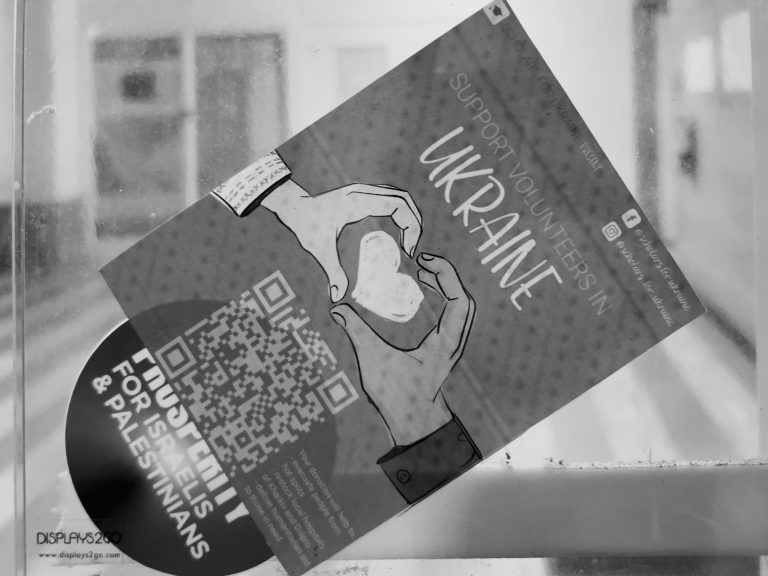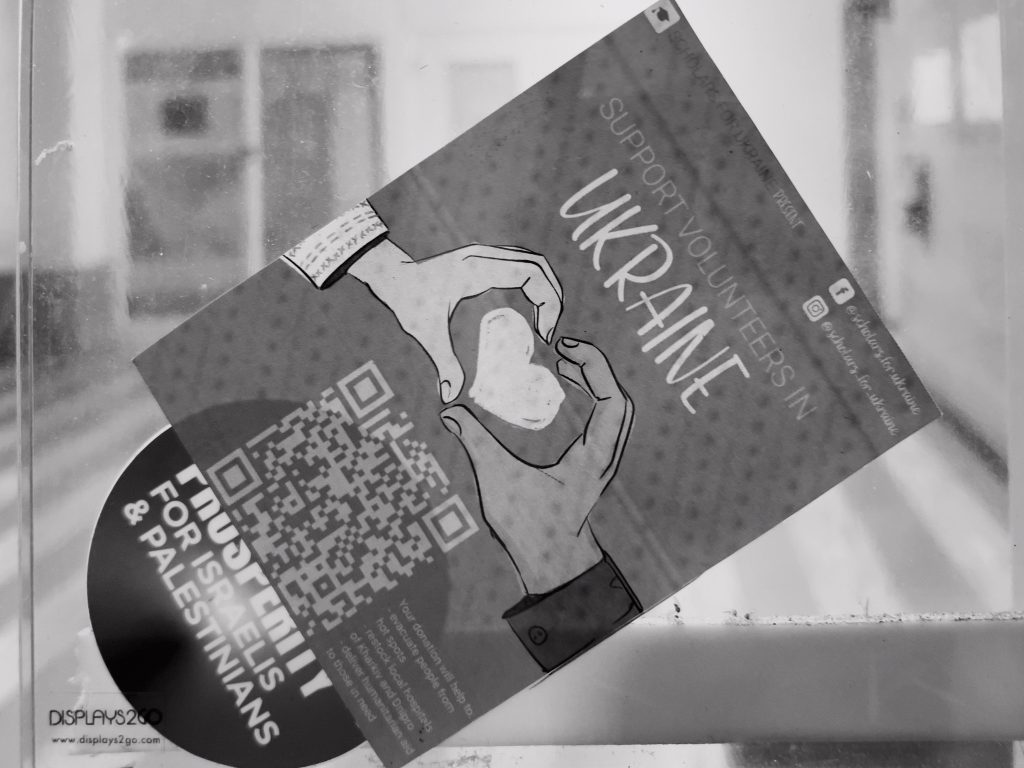
Cassie Pataky
Senior Staff
This Feb. 24 marked the one-year anniversary of Russia’s invasion of Ukraine. The war has not generated much hot-button news since its beginning, and so has since fallen out of the minds of many Americans as coverage shifted over the past year. In an effort to remind people of the ongoing war whilst celebrating Ukrainian culture, the Carsey-Wolf Center screened a Ukrainian film, “Shadows of Forgotten Ancestors,” on Mar. 2.
Ukrainian officials expected Russia to launch another offensive against them around the one-year anniversary, but there has not yet been such an attack. The majority of the fighting is concentrated in Donbas, the eastern region of Ukraine. Russian President Vladimir Putin does not plan to concede without gaining this territory, and Ukrainian President Volodymyr Zelenskyy refuses to relinquish any land, indicating that diplomatic settlement is not on the horizon.

Maj. Gen. Kyrylo Budanov predicts Russia will run out of “military tools” (human resources, armaments, etc.) by the spring. Hindered by sanctions, Russia does not have the resources to create more tools, so it will have to use potentially degraded stocks from the Cold War.
China could pose a threat to Ukraine, as there are rumors that it will provide Russia with weapons. The United States, Germany, and other NATO allies are discussing the sanctions they would impose on China if this should occur, providing a heavy deterrent for China’s potential aid.
In anticipation of Ukraine’s spring offensive, US President Joe Biden announced a new $400 million military aid package to Ukraine, which would include ammunition and tanks, on Mar. 3. The addition of this package contributes to the $32 billion that the US has sent Ukraine for this war.
Civilians in Ukraine continue to live through this war-torn environment, many fearing for their lives every day. In the coming weeks, with both Ukraine and Russia expected to launch heavier offensives, the brutality of this war will only increase.
How can UC Santa Barbara students help? The Carsey-Wolf Center’s recent screening of a Ukrainian film and the following discussion about it provided some insight into this question.
Shadows of Forgotten Ancestors is a tragedy about two forbidden lovers in a Hutsul village. The Hutsuls are a mountain people that reside in the Carpathian mountains, a range that runs through the southwest of Ukraine, Romania, and Hungary.
The film follows Ivan and Marichka who are from rival families and can only meet hidden in the fields and woods near their village. They form a friendship when they are little that soon evolves into love as they age. In a tragic accident, Marichka dies, leaving Ivan in a depressed state. Finally, Ivan meets and marries Palahna but, as his love still exists for Marichka, the new couple enters a loveless marriage. Palanha begins an affair with Yurko, another man in the village. Upon discovering their affair, Ivan raises his axe against Yurko, but he is struck down and eventually dies, though it is not clear whether from his wounds or suicide.
A key element in this film is its focus on the Hutsul culture, especially its rituals. The director, Sergei Parajanov, wanted to accurately represent the mountain culture in order to maintain the fascination of Mykhailo Kotsubinsky, the author of the eponymous novel that the film is based on.
One of the most iconic moments of culture in the film was the marriage ceremony, where Ivan and Palahna are blindfolded and yoked together. Interestingly, this was not a custom relayed in the novel. Parajanov added the ritual from a Hutsul love song that detailed it. Parajanov conferred with the Hutsul people, and they agreed that it should be in the film, and the Hutsul actors performed it with the same credence as they did the other traditional ceremonies in the film.
The film also emphasized the Hutsul dialect. While the main actors spoke perfect Ukrainian, the locals of the village had a Hutsul accent. The inclusion of this dialect meant the film could not be translated. At one point, someone asked for the film to be dubbed in Russian, but Prajanov refused on the premise that the story would not emphasize the culture in the same way.
Moments like these demonstrate the power of art as a weapon against colonization. Shadows of Forgotten Ancestors was created during the “thaw” of the Soviet Union, when Nikita Krushchev was in power. Ukrainians were more easily able to express their culture at the time. Historically, Ukrainian culture has been suppressed by the Soviet Union in an attempt to eradicate and reabsorb it into Russian culture. Shadows of Forgotten Ancestors is the first Ukrainian film of the Ukraine Revolution that made it into an international film festival, allowing their culture to be viewed and appreciated around the world.
Once again, Ukraine is under threat of being reabsorbed into Russia. Along with donating to various organizations that support Ukrainian troops, educating oneself on Ukrainian culture can help to maintain Ukraine’s legacy as a separate people.
On a more local level at UCSB, Razor suggests initiating a process of decolonizing departments such as Slavic Studies, where a Russo-centric curriculum is often taught. By studying more products from slavic states other than Russia, we allow the colonized to retaliate against the imperialist.










